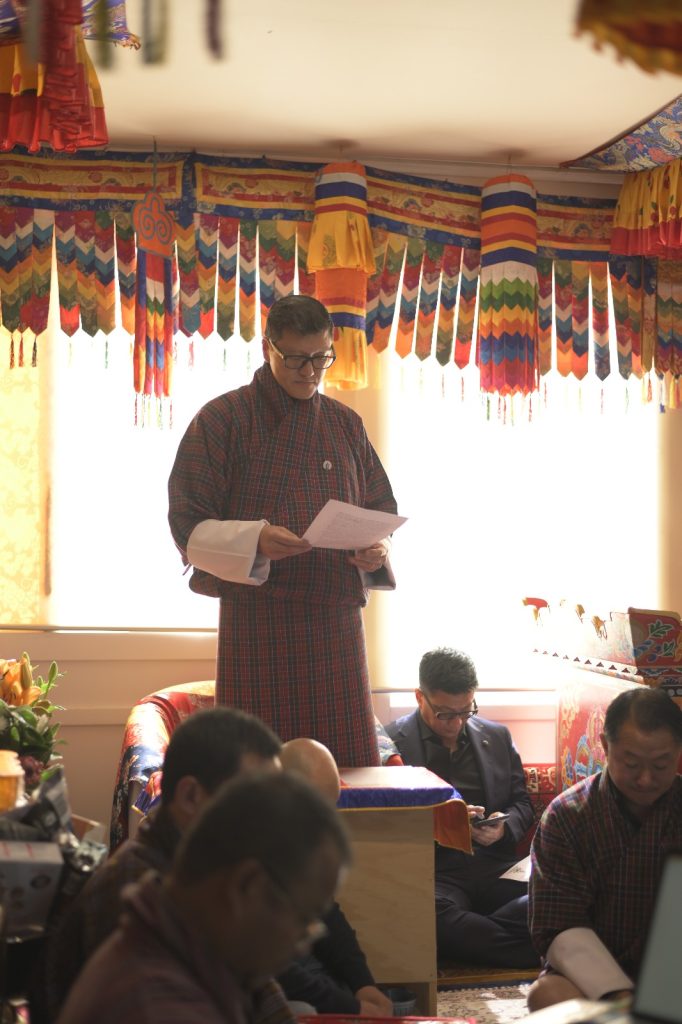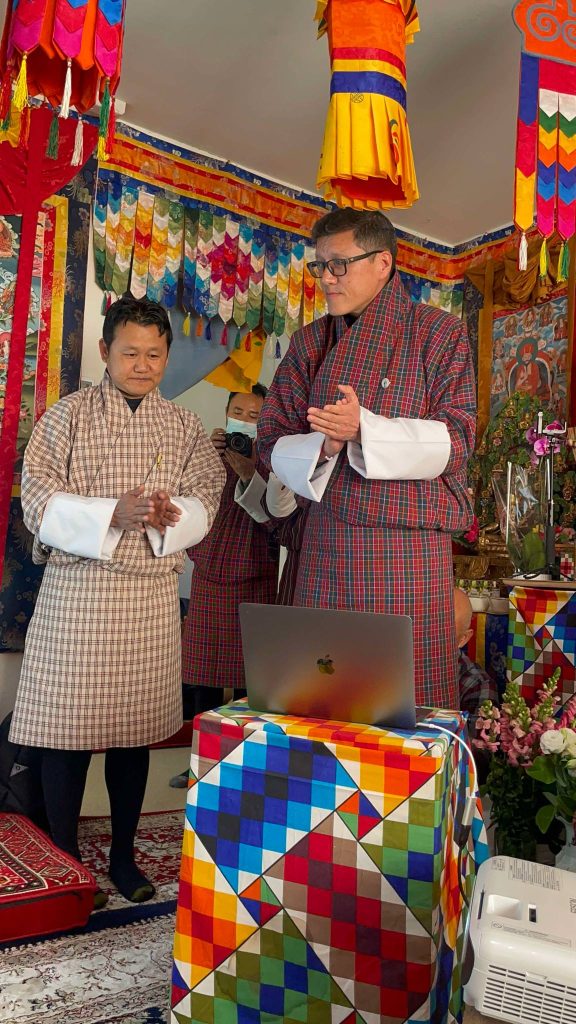The Bhutan Insights Journal was launched at the Bhutanese Buddhist and Cultural Centre in Canberra by Ambassador Sonam Tobgay on 02 May 2025, coinciding with the Birth Anniversary of His Majesty King Jigme Dorji Wangchuck.
The Journal aims to contribute towards His Majesty, The King’s visionary initiatives, including the Gelephu Mindfulness City, by stimulating academic and policy dialogues through interdisciplinary research. The Journal will serve as a vital platform for scholars, industry professionals and decision makers to share research, innovative ideas, and practical insights addressing both local and global challenges. The Journal is an outcome of the Australia-Bhutan Research Conference, initiated by the Embassy, with two iterations organised at the University of Sydney in 2023 and Edith Cowan University in 2024. The third iteration will be hosted in Bhutan by the Royal University of Bhutan.
Ambassador Tobgay said the Journal must serve as an excellent “ideation platform for providing unbiased, objective and evidence-based research for reforms and policymaking to achieve the national goals of a meritocratic democracy, enlightened entrepreneurial bureaucracy, responsive judiciary and a reformed education system”. He also called for the Journal to collaborate with educational institutions in and outside Bhutan.
The Journal’s Editorial Board includes some leading Bhutanese academics and scholars in diverse disciplines, along with notable international editors. It is a double-blinded, peer-reviewed journal and will publish biannually, covering diverse fields like education, policy, environmental sustainability, entrepreneurship, and technology. Founded by Dr.Phuntsho Wangdi, the Journal will be published by the Eduplus Training Institute in Bhutan. The Journal has formally announced an invitation for manuscript submission on topics encompassing education, forestry, economics and finance, medical sciences, social sciences, business and commerce, language and literature, digital science and artificial intelligence.





